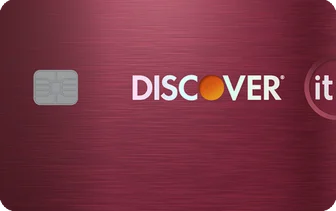In this comprehensive guide, we will delve into the question that plagues many individuals seeking financial stability and optimal credit scores: “How many credit cards should I have?”
We understand that striking the right balance is crucial, and we'll provide expert insights to help you make informed decisions regarding your credit card portfolio.
Let's explore the benefits and potential pitfalls of owning multiple credit cards while aiming to help those who are searching the term “how many credit cards should I have Reddit.”
How Many Credit Cards Should You Have According to Reddit
timelessblur commented on a Reddit thread stating that 3 credit cards is a good number:
Getting more credit cards is not how you build your credit score super fast. The big way to build your credit score is nothing more than time with a good payment history.
More credit cards can in theory help you by lowering your utilizations by more limit but there are dimensioning returns fast. Plus if you have a lot of available credit can cause some places to run from you but that is not score based.
As a general rule I believe in 3 credit cards. Primary, backup and then one do carry. That last one is for the just in case you lose your wallet you still have access to money while everything else is getting replaced. After that point your score is not helped and more you are looking at using the credit cards for their rewards.
I have a credit score north of 780. The only reason I have more than 3 credit cards is for reward purposes and because I am married my wife is the emergency backup card carrier as we do not have total overlap but beyond that I used to only carry 2 cards. A primary good cash back card (Amex) and backup card which was my Amazon Visa. My emergency backup was just another non rewards visa that I just kept in a desk drawer when I single for the just in case lost my wallet which yes I have had to use for a few days while my other cards were getting replaced.
However, welchplug, disagrees:
I disagree a bit. I have 6 credit cards that I have automatic payments for bills on each. My credit is in the 830s and I have never financed a car or house. The credit cards are my main focus of credit history.
What's my personal opinion?
In my opinion, the number of credit cards I should have depends on my individual financial situation and responsible credit management abilities. I understand that there is no one-size-fits-all answer to this question. Personally, I might find it manageable to have multiple credit cards, while others might prefer to have just one or two.
It's crucial to assess your own financial habits and needs before deciding on the appropriate number of credit cards for you to have.
That being said, there are pros and cons to owning multiple credit cards.
- Intro Offer: Get a $100 bonus when you use your card in the first 3 months.
- Cashback Match: At the end of your first year, Discover will match all the cash back you’ve earned with no limits. If you earn $150 in cash back, Discover will double it to $300!
- 5% Cash Back: Earn 5% cash back on rotating categories like Amazon, grocery stores, restaurants, gas stations, and PayPal purchases (up to the quarterly maximum when activated).
- 1% Cash Back: Earn unlimited 1% cash back on all other purchases automatically.
- Flexible Rewards: Redeem cash back at any time, in any amount, with no expiration on rewards.
The Pros and Cons of Multiple Credit Cards
The Advantages
- Enhanced Credit Score
When managed responsibly, multiple credit cards can contribute positively to your credit score. A diverse mix of credit accounts demonstrates your ability to handle various financial obligations, signaling reliability to lenders and credit bureaus. - Higher Credit Limits
Owning several credit cards may increase your overall credit limit. This elevated credit ceiling offers greater financial flexibility and can be beneficial during emergencies or when making significant purchases. - Specialized Rewards
Different credit cards often offer unique rewards and perks. By strategically choosing cards tailored to your spending habits, you can optimize cashback rewards, travel benefits, or discounts on specific purchases. - Utilization Rate Optimization
Maintaining multiple credit cards can help lower your credit utilization rate. This ratio compares your credit card balances to your total credit limit and affects your credit score. Lower utilization rates are generally favorable.
The Drawbacks
- Temptation to Overspend
An increased number of credit cards can tempt individuals to overspend, leading to accumulating debt that becomes challenging to manage. - Complex Budgeting
With multiple cards come multiple due dates and billing cycles, making budgeting more complicated. Missing a payment can harm your credit score. - Potential Fees
Some credit cards may carry annual fees or penalties, which, if not managed, can offset the benefits of card ownership.
Assessing Your Financial Situation
Before determining the ideal number of credit cards for you, conduct an honest assessment of your financial situation. Consider the following factors:
- Income and Stability
Evaluate your income stability and job security. Having a steady income source can instill confidence in managing multiple credit cards. - Credit History
Analyze your credit history and current credit score by getting your free credit score or by using free credit score apps. Individuals with a strong credit history are more likely to be approved for additional credit cards. - Financial Goals
Define your short-term and long-term financial goals. Align your credit card strategy with these objectives to make informed decisions.
Finding Your Credit Card Sweet Spot
1. Start Slowly
If you're new to credit cards or unsure about managing multiple cards, start with one. This allows you to understand credit card basics and build a solid foundation.
2. Gradually Increase Cards
Once you feel comfortable managing a single credit card, consider expanding your portfolio. Introduce a second card that complements your spending habits and offers unique benefits.
3. Monitor Your Credit Score
Keep a close eye on your credit score as you add more cards. If your credit score remains stable or improves, it indicates responsible credit management.
4. Limit New Applications
Avoid applying for multiple credit cards in a short period. Multiple credit inquiries within a brief timeframe can temporarily lower your credit score.
5. Avoid Unnecessary Cards
Only apply for cards that align with your financial goals. Owning credit cards just for the sake of it may lead to financial complications.
Managing Your Credit Cards Wisely
1. Set Up Payment Reminders
To avoid late payments, set up reminders for due dates. Timely payments are crucial for a healthy credit score.
2. Keep Utilization Low
Maintain a low credit utilization rate by paying off your balances regularly. Strive to keep your utilization below 30% of your total credit limit.
3. Review Your Statements
Regularly review your credit card statements for errors or unauthorized charges. Reporting issues promptly can save you from potential financial losses.
4. Avoid Minimum Payments
Paying only the minimum amount due can lead to mounting interest and prolonged debt repayment. Whenever possible, pay off your balance in full.
The Best Credit Cards
The Platinum Card® from American Express: Best for Good Credit
The Platinum Card® from American Express is a top choice for individuals with good credit. It offers premium travel benefits like airport lounge access, annual travel credits, generous rewards points, global assistance services, and no foreign transaction fees.
Cardholders also enjoy statement credits for everyday expenses and exclusive Amex Offers. Overall, it's a highly appealing card for frequent travelers seeking luxury and rewards.
Discover it® Cash Back: Best for Fair Credit
The Discover it® Cash Back credit card is a top choice for individuals with fair credit for several reasons. It offers a cashback rewards program, providing the opportunity to earn rewards while building credit.
With no annual fee and the potential for credit limit increases, it's a cost-effective option that allows users to improve their credit utilization ratio. Cardholders can monitor their FICO® Credit Score for free, enabling them to track their credit progress.
Additionally, in the first year, Discover matches all cash back earned, boosting rewards potential. The card may also feature an introductory 0% APR period for purchases and typically does not charge foreign transaction fees, making it suitable for travel. As with any credit card, responsible use remains vital for positive credit growth.
- Intro Offer: Get a $100 bonus when you use your card in the first 3 months.
- Cashback Match: At the end of your first year, Discover will match all the cash back you’ve earned with no limits. If you earn $150 in cash back, Discover will double it to $300!
- 5% Cash Back: Earn 5% cash back on rotating categories like Amazon, grocery stores, restaurants, gas stations, and PayPal purchases (up to the quarterly maximum when activated).
- 1% Cash Back: Earn unlimited 1% cash back on all other purchases automatically.
- Flexible Rewards: Redeem cash back at any time, in any amount, with no expiration on rewards.
By following these insights and recommendations, you can confidently navigate the world of credit cards while optimizing your financial well-being. Remember, responsible credit card management is the key to a successful financial journey. You can view our list of the best credit cards here if you wanted to see our full list.
Conclusion
In conclusion, the ideal number of credit cards varies based on individual financial situations and goals. While multiple credit cards can offer advantages such as enhanced credit scores and specialized rewards, they require responsible management to avoid debt traps and negative impacts on credit. Start with one card, understand your financial capabilities, and gradually expand your portfolio. Always prioritize responsible credit card usage, and remember that quality financial decisions pave the way to a brighter financial future.
- The Advantages
- The Drawbacks
- 1. Start Slowly
- 2. Gradually Increase Cards
- 3. Monitor Your Credit Score
- 4. Limit New Applications
- 5. Avoid Unnecessary Cards
- 1. Set Up Payment Reminders
- 2. Keep Utilization Low
- 3. Review Your Statements
- 4. Avoid Minimum Payments
- The Platinum Card® from American Express: Best for Good Credit
- Discover it® Cash Back: Best for Fair Credit









